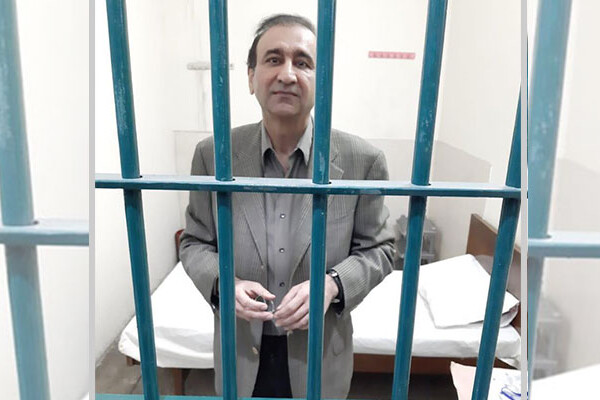It has now been more than 200 days since the arbitrary arrest of Mir Shakil-ur Rahman and there is still no sign that he will be released.
Mir Shakil-ur-Rahman (MSR), a prominent Pakistani journalist and the Editor-in-Chief of the Jang Media Group, was arrested on 11 March in relation to a decades old property transaction. He has since remained in pretrial detention in Lahore and held, without bail, by the government’s National Accountability Bureau (NAB).
Staff from news outlets Jang Media, Geo and The News have continued to protest for MSR’s release, describing his detention as “illegal” and “unjust”. They urge the government of Pakistan to drop charges.
Last week, international condemnation was also ramped up. Workers from Geo Europe were joined by international journalist organisations Reporters without Borders (RSF), The Committee to Protect Journalists (CPJ) and Human Rights Watch (HRW), as well as academics and political workers in a demonstration at the headquarters of the European Commission, the European Council and the European External Action Service in Brussels, to demand for MSR’s release.
Following a meeting by the Federal Executive Council (FEC) of the Pakistan Federal Union of Journalists (PFUJ) in Quetta last week, the Council voiced its concerns about the ongoing attacks on journalists and media freedom in Pakistan. As we highlighted in our September Call Out, independent journalism in Pakistan is operating under immense pressure. Last week the International Federation for Journalists (IFJ) reported the seventh journalist to be killed in Pakistan this year.
In a statement, the FEC outlined the various ways in which journalists in Pakistan are prevented from reporting the truth and holding authorities to account:
“From financially squeezing the media houses to imposing unannounced censorship, telephonic threats to owners and torture and kidnapping of journalists by the anti-media forces, every tool is being used to muzzle the voice of the free media.”
According to The News, the FEC demanded that these attacks on journalists and media houses cease, and that recent advisories from the Pakistan Electronic Media Regulatory Authority (PEMRA), which has often imposed restrictions and suspensions on broadcasters, is withdrawn. The FEC further demanded that “the government should take all necessary steps to ensure freedom of press/media”, arguing that such steps would lead to greater “transparency, good governance, strengthening the process of democracy, democratic norms and democratic institutions in the country.”
Yet, in an exclusive interview with Al Jazeera earlier this month, Prime Minister Imran Khan denied that media freedom and freedom of speech was being curtailed under his leadership and argued, “I don’t mind criticism, but there is blatant propaganda and fake news against the government.”
With its term in the UN’s Human Rights Council due to expire at the end of this year, authorities in Pakistan must recognise that media freedom and freedom of expression are fundamental to the functioning of a healthy democracy if they wish to seek renewed membership. Spokesperson for the UN High Commissioner for Human Rights, Rupert Colville, recently voiced concern about attacks on journalists and activists – predominantly against females and minorities – and encouraged the Pakistan government to actively protect freedom of expression in the country.
PMA calls for the immediate release of MSR and a commitment by the Government of Pakistan to support greater media freedom within the country.
Header Image: Mir Shakil-ur-Rahman, the owner, CEO and Editor in Chief of Geo TV and the Jang Media Group after his arrest in March. Credit: Geo
Related Posts
23rd September 2020
Call Out: COVID-19 compounds risks to public media and their critical role in democracy
Independent public media and public…
29th July 2020
Space for independent and critical media continues to shrink in Pakistan
It has now been 139 days since the…
24th March 2020
PMA calls for the immediate release of Pakistan editor and media owner
The PMA have issued a letter to…

